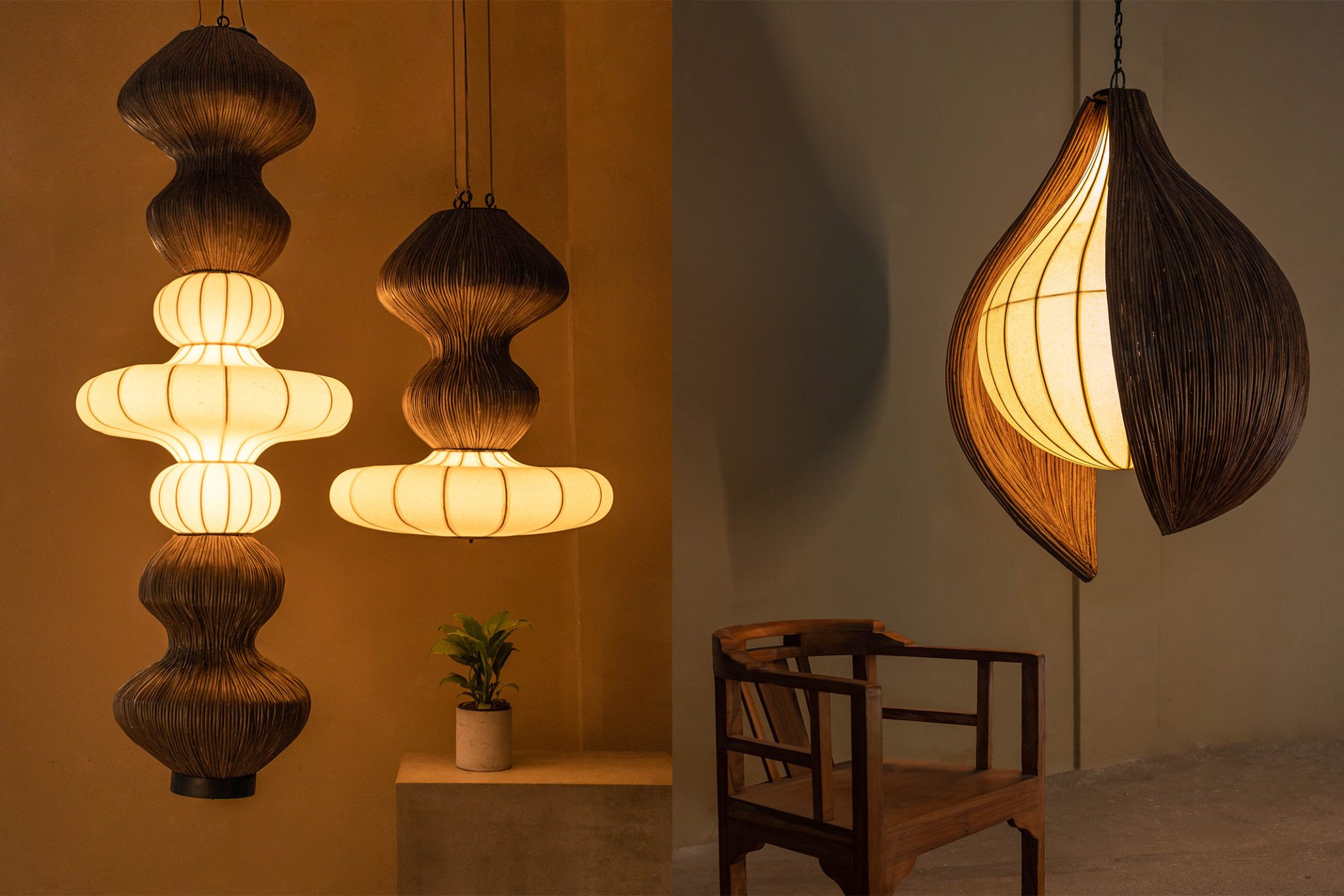Designing A Better Future – Global Grad Show, 2019
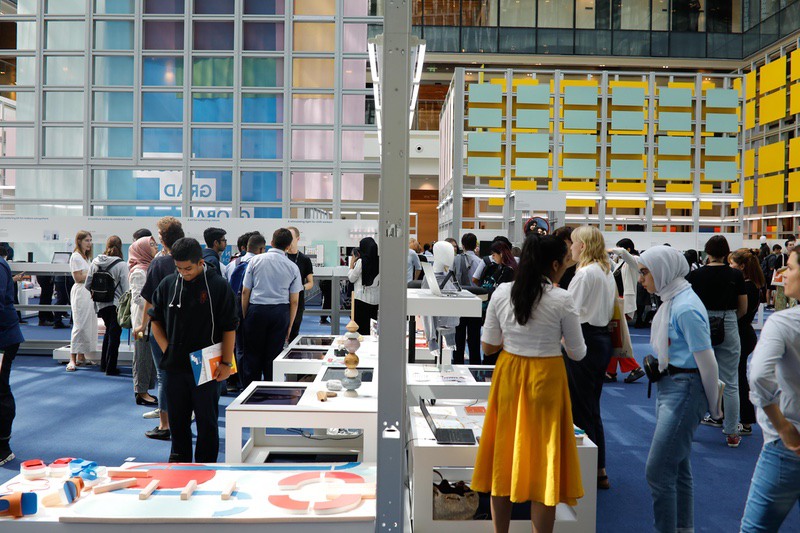
Earlier this November, Design Pataki attended Dubai Design Week’s Global Grad Show which had an atmosphere unlike any other design show we’ve been to. Bursting with optimism, curiosity, and budding talent waiting to be discovered, Global Grad Show served as a compelling reminder of the importance of design education. Every year, this one of a kind event brings together the future generation of designers and innovators from both first-world and developing countries, to present their work on an international platform. The Global Grad Show is an integral part of Dubai Design Week, the Middle East’s most significant creative festival. Featuring over a hundred universities from 43 countries, this was their most diverse edition to date.
From paint that changes its colour based on temperature, to portable washing machines for students living away from home, the designs showcased explored innovation that could create a positive impact. The themes of health, wealth & disparity, gender & equality, sustainability, education, and technology were recurring throughout the show. Both conceptual and realised, the projects for Global Grad Show were selected based on how they responded to a range of criteria, including the four tenets of the exhibition; Innovation, Impact, Equality and Exchange.
“Global Grad Show is a coming together of the brightest young minds in the design industry, showcasing projects from over 100 schools this year,” says Eleanor Watson, curator of the global grad show 2019. “The curatorial approach of this year aims to show the connections between different spheres of human existence; as visitors walk through the exhibition, they will experience projects related to the human first, moving on to the home and community and finally the city, and planet. Our hope is that it will inspire others to think critically about how they live while inspiring all of us to act consciously.”
The Global Grad Show featured groundbreaking concepts across various categories. Here are some of our favourite projects from the Home section, that combined innovation with social and environmental consciousness –
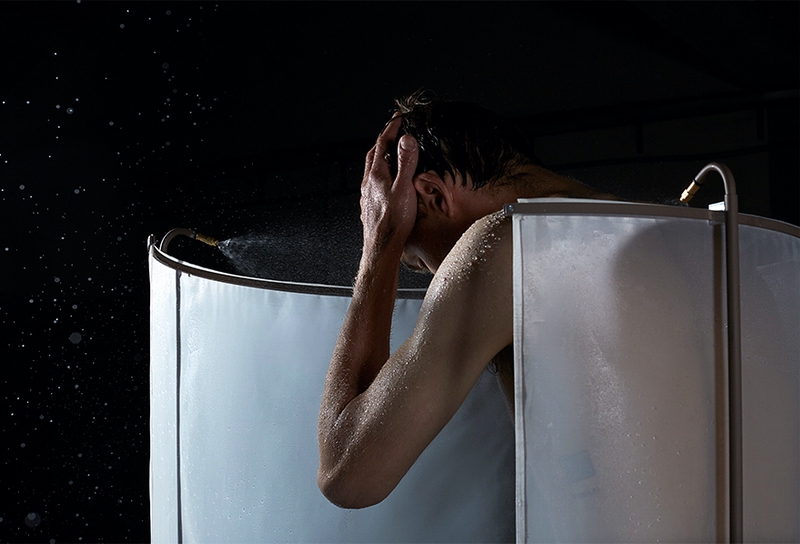
Minimal Water
Jonas Gorgen, Design Academy Eindhoven
A unique way to cut down on daily individual water and energy consumption, this prototype replaces water with mist for showering or bathing. Mist nozzles break down water into tiny droplets, multiplying the surface area. The structure is built close around the body for optimal thermal comfort, using mesh to confine the mist. Taking a 5-minute mist bath would use 7.5 litres of water, while the average shower takes 50 litres.
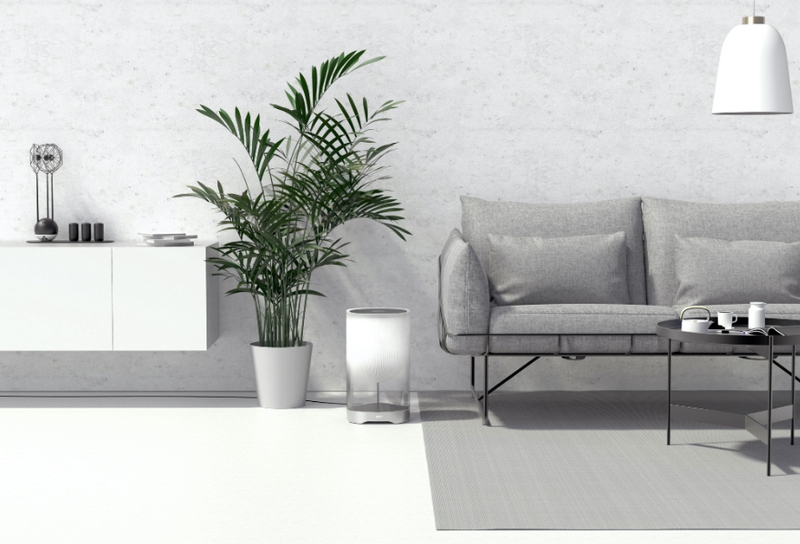
SolMate: Smart Energy
Winfried Werthmann, University of Applied Sciences, FH Joanneum Graz
SolMate 2 is a portable solar energy generator designed to be used around the home. The product generates energy through its built-in solar panels, which is then stored and used as and when needed. Its compact design and simple user interface aim to encourage widespread use, facilitating a transition to solar energy at an individual level. An accompanying app allows users to track energy production and consumption in their home. Rotomo, Jitendra Sharma SolMate 2 is a portable solar energy generator designed to be used around the home. The product generates energy through its built-in solar panels, which is then stored and used as and when needed. Its compact design and simple user interface aim to encourage widespread use, facilitating a transition to solar energy at an individual level. An accompanying app allows users to track energy production and consumption in their home.
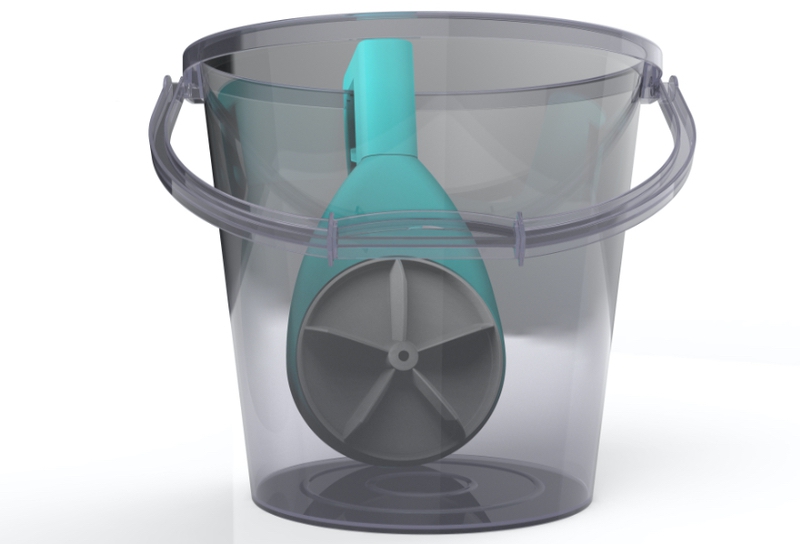
Rotomo
Jitendra Sharma, Pearl Academy, New Delhi
Rotomo is an affordable alternative to hand-washing, for those who don’t have easy access to washing machines. It is a portable washing machine that can be clipped to the side of a bucket to wash clothes quickly and easily. Using a strong DC motor and high torque, the device allows users to wash their clothes in five to ten minutes, the telescopic height making adjustable for use with different-sized buckets.
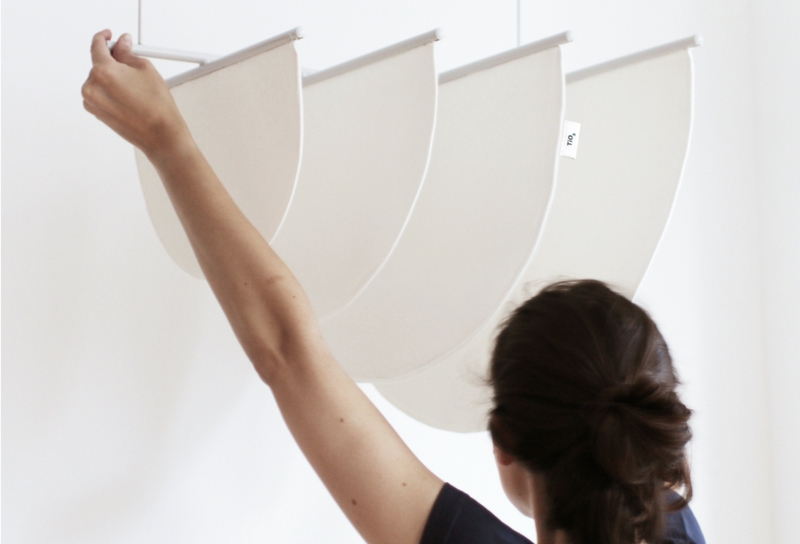
Titanium, Silicon, Air
Paulina Kwiatkowska, Academy of Fine Arts, Warsaw
Titanium, Silicon and Air is a series of three domestic objects designed to naturally clean the air inside the home, as well as regulate humidity and temperature. Each object relies on the properties of fabrics, reinforced by specific substances that increase their efficiency. ‘Titanium’ is a fabric surface that has been covered in titanium paint. The paint reacts with light and causes a photocatalytic reaction that cleans the air from organic impurities. ‘Silicon’ combines cotton with silicon oxide, naturally absorbing excess humidity. Lastly, ‘Air’ combines cotton with a low-density foam to create a light, sculptural object with high insulating properties.
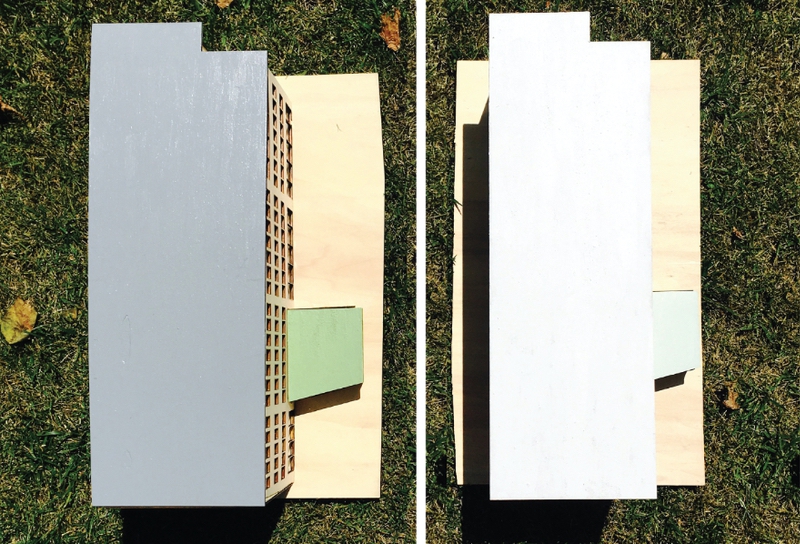
Spectrum: Reflective thermochromic paint for roofs
Raphael Sanchez, Collège des Ingénieurs (CDI)
Spectrum is a reflective thermochromic paint that changes its colour based on temperature. It is designed to be applied to the roofs of buildings, providing a passive cooling solution and improving the building’s energy efficiency. If the outdoor temperature reaches over 30 degrees Celsius, the paint becomes white, increasing its reflexivity and stopping the building from absorbing heat. Once the temperature drops, the paint returns to its usual dark tone and allows for greater absorption. It is estimated that the application of the paint to a cityscape could lower the average temperature by up to 3 degrees Celsius.
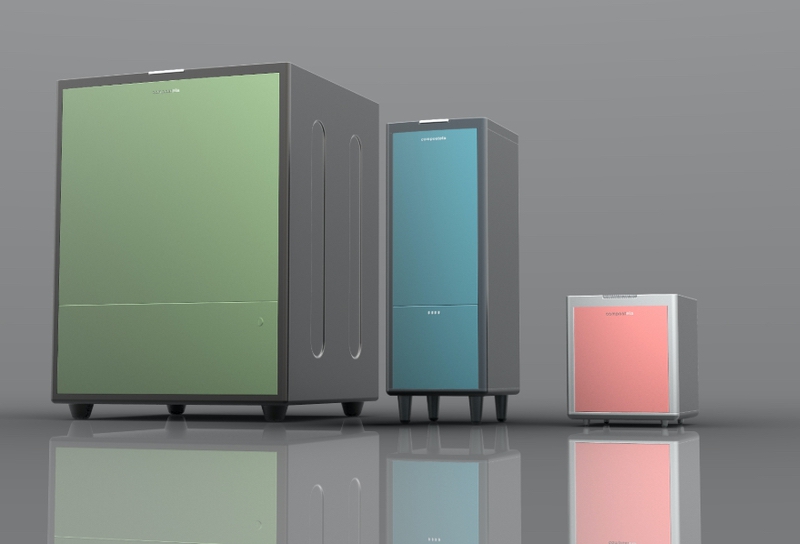
Compostela
Julia Ries, Pontifical Catholic University of Rio de Janeiro
Compostela is an electrical home composter that optimises the composting process through aeration of the compost, temperature control and the addition of aerobic bacteria. It contains several layers of activated carbon filters, making it odour-free and reducing the volume of the inserted matter by 70%, generating a fertiliser rich in nutrients. It allows users to manage the disposal of organic waste in the home, reducing the volume of waste sent to landfills and relieving pressure on the city’s waste disposal systems.






















